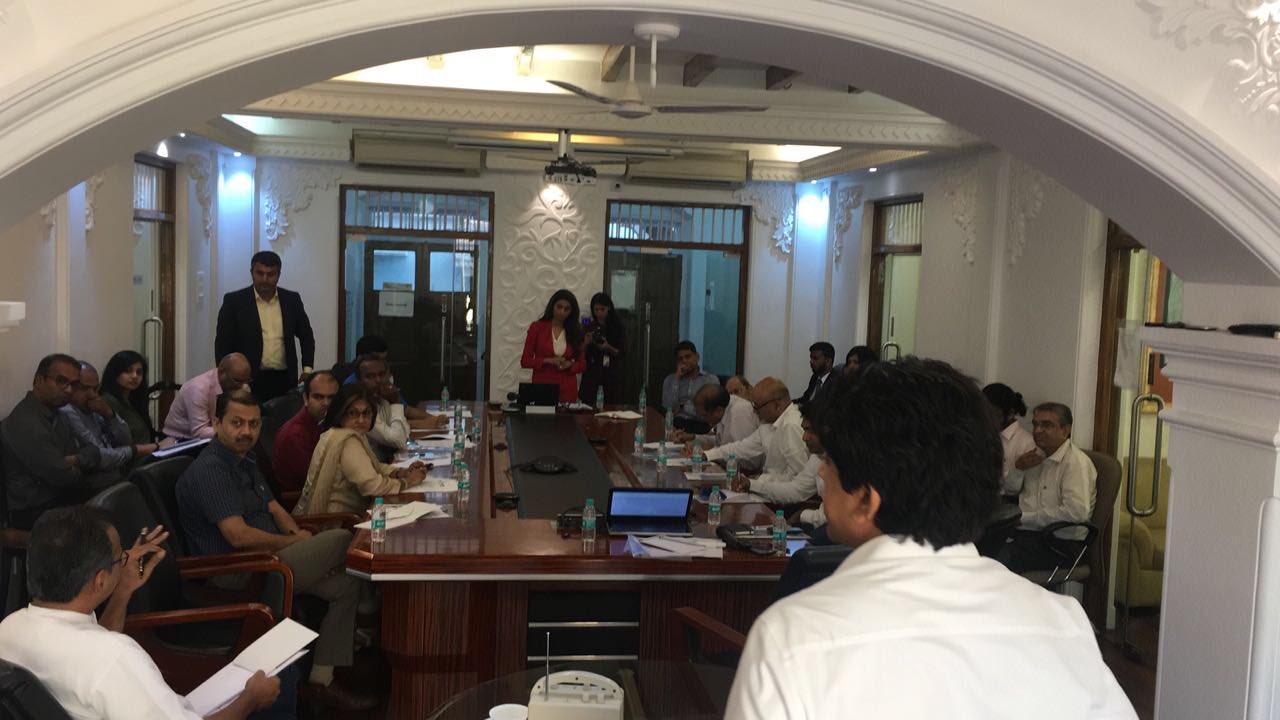In a round table discussion hosted by SFLC.in, Mouthshut.com, IIT Bombay and Ananta Aspen Centre yesterday, several law and technology experts from industry, civil society, and academia, discussed how India’s data protection law should shape up. There was a good representation from the industry with representatives of Reliance Jio, DCB
Bank, TCS and Fintech participating in the discussion.
This closed-door discussion under the Chatham House Rule covered the key tenets and frameworks to be included in a future law that tackles data protection while safeguarding the right to privacy of the people of India. Thoughts and concerns were exchanged on how the masses, who are bound to be compliant with government laws and norms of private companies, are effectively forced to give up a lot of their personal data. Many participants highlighted the need for clearer regulatory frameworks overseeing the technology industry. Simplification and standardisation of terms and conditions were flagged as essential steps in engaging a customer to make an informed consent. The issue of informed consent was debated with participants divided on the practicality of shifting the onus of a decision to private citizens and individuals who may not always have the time, patience or ability to comprehend the key issues at stake.
Many raised concerns on the fact India currently has a massive possibility of circumventing legal obligations and accountability principles by both state and non-state actors, . The lack of a clear data protection framework also creates other problems like allowing service providers to get away with inadequate responses to data breaches. Most participants agreed that a policy of no harm should be followed rigorously by the private sector keeping the interest of the individual consumer at the forefront.
It was pointed out that the popular narrative against strict data security is “If you bring regulations about data protection, companies will not be able to innovate.” The discussion brought forth divided views on the issue of data being collected and used in the name of innovation. The consensus among the participants was that we should move away from
advertising-innovation and focus on innovation for personal privacy.
The round-table discussion concluded with discussions on GDPR (General Data Protection Regulation) followed in the EU and the extent to which its principles may be imported into India. Focusing specifically on extra-territorial applicability clause of the GDPR, most discussants agreed that if a data controller or processor is offering goods and services or monitoring the behaviour of data subjects, they should fall under the purview on Indian jurisdiction, be it an Indian provider or foreign company.
Organizing partners
SFLC.in
SFLC.in is a donor-supported legal services organisation that brings together lawyers, policy analysts, technologists, and students to protect freedom in the digital world. SFLC.in promotes innovation and open access to knowledge by helping developers make great Free and Open Source Software, protect privacy and civil liberties for citizens in the digital world by educating and providing free legal advice and help policy makers make informed and just decisions with
the use and adoption of technology.
For more information, please visit http://sflc.in
Ananta Aspen Centre
An independent organization, Ananta Centre is registered under the Indian Trust Act. It focuses on leadership development and encourages frank and open dialogue on the most important issues facing Indian society, to help foster its transformation. The Centre also engages civil society, business, governments and other key stake – holders on issues of importance to India’s development, foreign policy, strategic affairs and national security. The Centre serves as a convening body for exchange of ideas, broadening perspectives and enhancing capacity to create sustainable solutions on a wide variety of issues.
MouthShut.com
MouthShut.com is a meeting place for consumers to exchange ideas, opinions and feedback on products they have used or are considering buying. MouthShut.com serves the critical mission of helping consumers make the most informed decision based on feedback of peers and other consumers like them.It gives users the opportunity to exchange ideas, thoughts, and create buzz about brands and products. MouthShut.com facilitates brands and brand managers to gain real-time direct consumer insights, study consumer preferences, and in turn shape their marketing approach. MouthShut.com has earned the reputation of being a vital tool for every marketer’s handbook, influencing most product strategies and communication plans. Started as a simple review interface, MouthShut.com has morphed into a comprehensive platform with more than 3 6 million registered users and millions of reviews on hundreds of thousands of products. It gives users the opportunity to connect with other like-minded individuals, exchange ideas, thoughts, and create buzz about brands and products.
IIT Bombay
Established in 1958, the second of its kind, IIT Bombay was the first to be set up with foreign assistance. The funds from UNESCO came as Roubles from the then Soviet Union. In 1961 Parliament decreed the IITs as ‘Institutes of National Importance’. Since then, IITB has grown from strength to strength to emerge as one of the top technical universities in the world. The institute is recognised worldwide as a leader in the field of engineering education and research. Reputed for the outstanding calibre of students graduating from its undergraduate and postgraduate programmes, the institute attracts the best students from the country for its bachelor’s, master’s and doctoral programmes. Research and academic programmes at IIT Bombay are driven by an outstanding faculty, many of whom are reputed for their research
contributions internationally.




